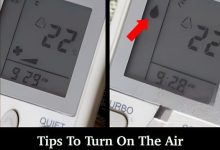Joel K. Kahn, MD
Holistic heart doc Joel K. Kahn, MD, shares what doctors may not learn in medical school about heart disease prevention.
The most powerful medicine: food
I’ve personally followed a plant-based diet for decades, but when the medical literature started reporting that this eating style helped reduce the rate of heart attacks, I began recommending it to patients. Many of them don’t go meat-free, but they still benefit from the advice that follows.
Have at least five cups of veggies a day
Two of the largest studies examining how eating habits affect chronic disease have found that people who ate eight or more servings a day were 30 percent less likely to have a heart attack or stroke than people who consumed one and a half servings or fewer. So eat at least five cups of fruits and vegetables a day. My patients find it easy—and tasty—to drink some of their servings by making a greens-based juice (with fruit) in a blender.

If you must eat meat, eat it naked
Forgoing animal products can be a drastic change. At the very least, avoid processed meat like hot dogs, sausages, and bacon. Harvard researchers found that every 1.8 ounces of processed meat eaten more than once a week raises heart disease risk by 42 percent. In addition, eat meat that’s as “naked” as possible—no antibiotics, hormones, or hidden additives. Opt for grass-fed animals, which have more heart-healthy omega-3 fatty acids than grain-fed animals.

Drink three cups of tea a day
Green, black, and oolong varieties help reduce levels of total cholesterol and triglycerides, regulate levels of blood sugar, and soothe inflammation.

Choose SMASH fish
SMASH fish are: sardines, mackerel, anchovies, salmon, and herring. They are your best sources of heart-healthy omega-3s (known to reduce inflammation, heart rhythm disturbances, triglyceride levels, and blood pressure). They are also less likely to be contaminated with toxins than other types.

Fast 11 hours every night
The body needs this break to repair metabolic functions. Skipping this fast—say, with a midnight snack—can cause a rise in inflammation, blood sugar, blood fats, and cell aging. Put a mental “closed” sign on your kitchen after dinner, ideally around 7 p.m.

Clean with kitchen staples
Many cleaning products—even some “green” ones—contain chemicals that have been linked to stroke and high blood pressure. When possible, clean your kitchen with items you’d cook with, such as white vinegar, lemon, baking soda, and cornstarch.

Toss your plastic containers
Chemicals in plastic, such as bisphenol A (BPA) and phthalates, leach into the food in these containers. If enough residue accumulates in your body, it can throw off your hormonal system. Studies have linked levels of BPA in people’s urine to heart disease risks. More than 15 medical papers link phthalates to cardiovascular issues. Use glass, ceramic, or stainless steel storage containers instead.

Take vitamin “Y” every week
Yoga has a direct and powerful impact on your heart. Patients with atrial fibrillation, the most common heart rhythm disturbance, who did yoga for three months had fewer episodes. In another study, when 30 people with high blood pressure practiced yoga for just five to seven minutes twice a day for two months, they had a lower resting heart rate and blood pressure compared with a control group who didn’t do the exercises.

Practice active acts of kindness
People who spend more time being sedentary are 73 percent more likely to develop metabolic syndrome, a cluster of problems that raise heart disease risk. One way to motivate yourself to get in small bouts of physical activity: Do them for someone else. While you’re out shoveling snow, clear your neighbor’s walkway too. Instead of sitting down on the bus, give your seat to a fellow passenger.

Open your windows
The air inside your home might be even more polluted than the air in the world’s dirtiest cities. There are dozens of possible sources—hairspray, candles, fumes from the nonstick coating on your cookware. While any might be harmless in small amounts, the caustic brew they create when mixed together can turn up inflammation, raise blood pressure, and harden arteries. Open windows on milder days, and use a fan to circulate the air to reduce indoor air pollution levels.

Sit in a sauna
We have all seen signs by saunas and steam rooms advising precaution for heart patients. But Japanese researchers have found that a special kind called an infrared sauna, which penetrates the skin with more energy than a typical dry sauna, can help the heart. Heart patients treated with this therapy at least twice a week had half the rate of hospitalization and death of a control group over a five-year period. It may improve the function of the cells that line the arteries. If you can’t find an infrared sauna, you may benefit from a traditional dry sauna at your typical gym.

List something you’re grateful for every day
When University of Connecticut psychologist Glenn Affleck interviewed 287 people recovering from a heart attack, he discovered that people who found a benefit from their illness were less likely to suffer another within eight years. Each day, write down one or more things you are grateful for, and read the journal once a week.








